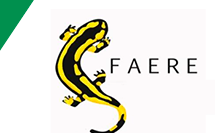This article explores the role of social interactions between tourists and residents, in a territory under heavy tourist pressure, around the sorting behaviours of household waste. While it is well established that these sorting behaviours respond both to monetary incentives and social norms, the way in which these two categories of motivations interact to form observed behaviours remains an open question.
In order to explore empirically this question, we focus on a specific field of study: that of a small island economy (Corsica) subject to significant seasonal tourist pressure. We use the Discrete Choice Experiment method, by proposing to the respondents (tourists and residents) to rank various waste management scenarios.
Estimation of rank-ordered logit models shows that the interactions between tourists and residents, measured by appropriate questions and scores, indeed influence sorting behaviour, suggesting a crowding-in effect between monetary incentives and sensitivity to social norms, at least for some individuals.




